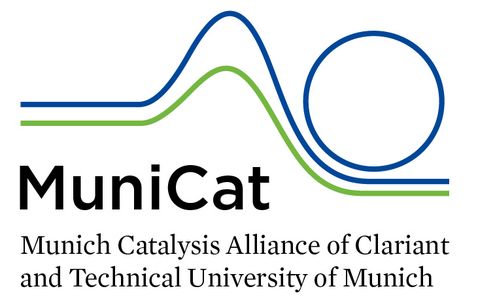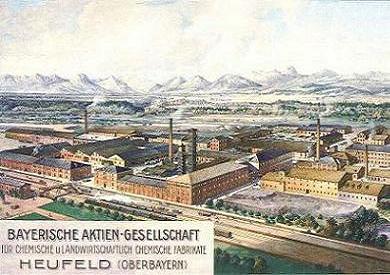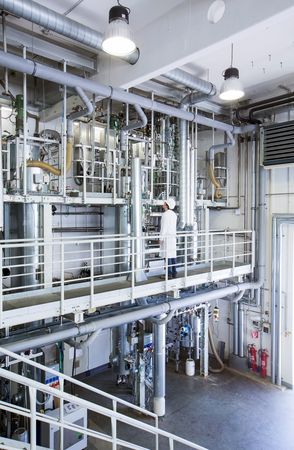What is MuniCat?

The Technical University Munich and Clariant, a global company with a leading position in production of speciality chemicals and catalysts, set up a strategic partnership, Munich Catalysis (MuniCat) – Alliance of Clariant and TUM, in research, development and application of innovative, vanguard catalyst and pioneering catalysis-technologies, since November 2010. For that, the state of the art technical expertise from both sides is applied in research projects, located in the central institute “Catalysis Research Center”, CRC of the Technical University of Munich.
The main topics of this cooperation are on one hand fundamental research in the field of catalysis regarding the development of highly innovative catalysts serving as a key technology, ensuring the globally rising demand for energy and base chemicals as well as sustainable contributions to the catalytic protection of the environment. Up to 2 million euro per year are provided by Clariant for the research projects. MuniCat runtime is scheduled for ten to twelve years and shall be succeeded by a second period.

Catalysis is known to be a leading, cross-sectional inevitable key technology for industrial conversion processes of the 21st century. Chemical reactions including catalysts enable an economic and ecological pathway to almost all major industrial, chemical products while saving efficiently energy and raw materials. Moreover, catalysis plays a pivotal role in the envisaged substitution of crude oil as basic precursor in chemical industry through production of chemicals based of alternative precursors like natural gas, coal or renewable raw materials.
One focus of the joint research approach, besides the development of innovative catalysts and preparation methods, is to find new ways to manufacture base chemicals. Thus, one of the main challenges is the efficient conversion of the chemically inert carbon dioxide. More specifically, creating new possibilities to separate the ubiquitous greenhouse gas efficiently from various technical processes and then to use it in a chemical production loop, for instance as an component in synthesis of energy carriers such as methane or other base chemical like methanol. Further a main topic is the development of new crude oil independent manufacturing routes of high-quality plastic-precursors, like short-chained olefins.

Munich Catalysis also deals with research and application of novel methods of catalyst production in every stage of preparation. Thereby, techniques as the synthesis of defined size and highly selective active centres are target, as well as the application and adaption of additive manufacturing technologies for individual catalyst shaping. In parallel, modern techniques like machine learning and various simulation and modelling tools are established to support the investigations.
The cooperation with Clariant is very important concerning the overall strategy of TUM to pool the university research in the area of applied and modern catalysis. The research alliance is operating in the new Catalysis Research Center of TUM. The CRC, as the center of the catalysis research, accommodates a combination of fundamental and industry-related research. Therefore, TUM scientists and researchers from Clariant work together on highly relevant and actual scientific challenges of the fundamental but also applied catalysis in the spirit of an industry on campus concept. Furthermore, depending on the progress of development of the individual projects, additional expertise from other TUM researchers like engineers or process technologies in general will be added.